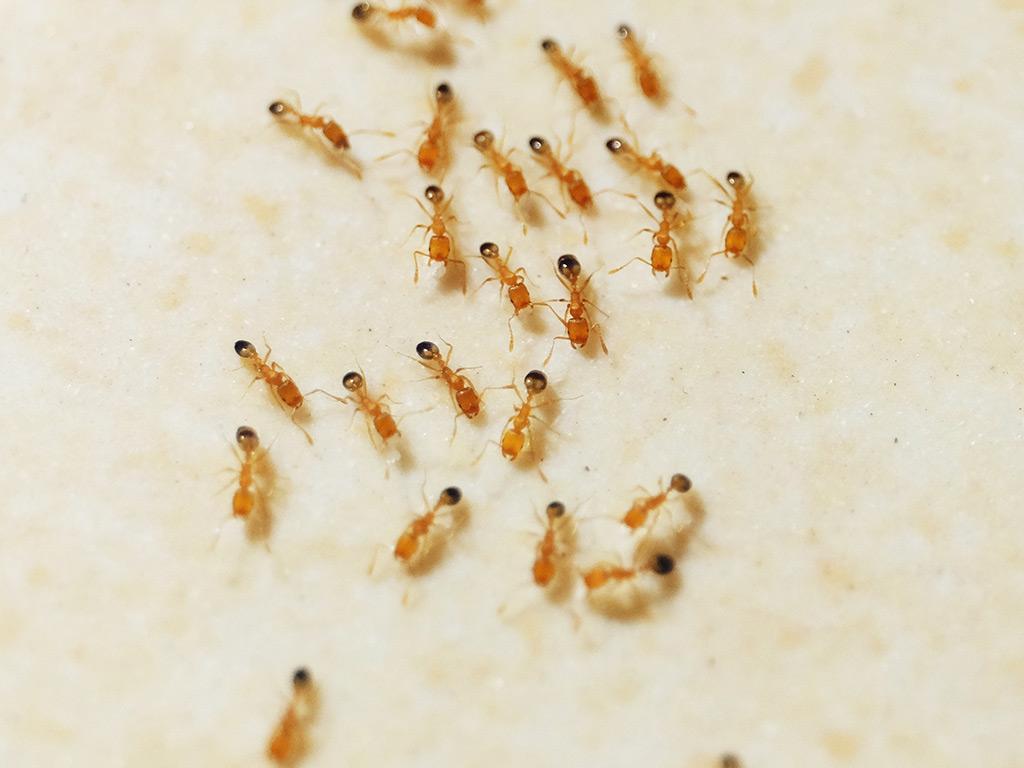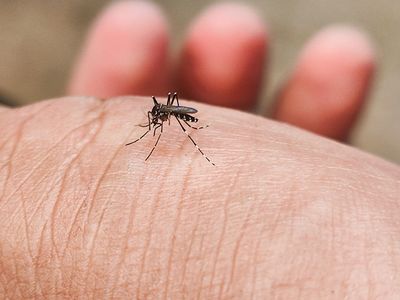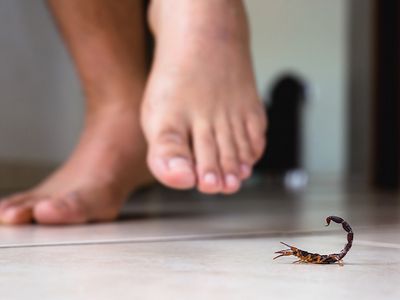What do thief ants look like?
Thief ants are extremely small insects and are one of the smallest ants you'll find on your property. Workers are less than 1/32 inches in length, which makes it hard to distinguish the physical traits that differentiate them from other ants. A thief ant has a golden yellow to light brown coloration, three body parts, six legs, and two antennae. Under magnification, you may notice that its antennae are shaped like a handlebar with ten segments terminating in a 2-segmented club on each side. You may also notice that it has two nodes on its petiole, the thin strand between its thorax and abdomen. On the tip of the abdomen is a stinger.

What do thief ants eat?
A thief ant will dine on a variety of food sources, including foods found inside your home. They eat carbohydrate-rich foods, nuts and seeds, animal fat and oil, dairy products, and meats. They're not picky about what they eat and can feed on food resources in your trash or decaying organic matter in the cracks of your kitchen. They're also known to live in the nests of larger ants and steal their food, larvae, and pupae, which is why they're called thief ants.
Do thief ants bite or sting?
Insect stings are often called bites. Ants don't typically bite and cause harm. They bite to hold on. With that clarified, let's consider the question. Can a thief ant sting? Yes and no. These ants have stingers and are capable of stinging, but they're not known to sting. Entomologists reason that thief ant stingers are ineffective against human skin, due to their small size so there is no risk. These ants are not considered a stinging hazard, though they may have the ability.
Are thief ants harmful?
Thief ants get into unsanitary places and pick up disease-causing microorganisms. When they enter man-made structures, they can deposit these invisible germs on surfaces, dishes, and silverware. They can also introduce them to food packages in your pantry and kitchen. The result of this contamination is often stomach cramps, diarrhea, fever, and other flu-like symptoms.
What are thief ants attracted to?
Thief ants are drawn to locations that provide food sources. If you have unprotected food packages, pet food in dishes, food debris on the floor, grease on the side of your oven, or some other edible matter, these ants may move in.
Do thief ants nest in walls?
Yes, thief ants are able to nest in a wall void. They can nest in other structural voids as well, such as floors and ceilings, and behind baseboards and cabinets. They are adaptive in their nesting habits and are found nesting in crevices, cracks, gaps, and wall outlets. There are few places they can't nest.
How can I identify a thief ant infestation?
When thief ants infest your home, you're likely to see workers crawling around or swarming together. They are not limited to nighttime activity and have no trouble coming out into the light as they search for the food they need.
How do I get rid of thief ants?
It is extremely difficult to get rid of thief ants because they live in small colonies of hundreds or thousands with many queens. When disturbed, colony budding can spread these ants within a structure. The best way to get rid of thief ants in Phoenix and surrounding areas is to contact Greenway Pest Solutions for help.
Our pest control specialists are well-versed in identifying and treating thief ants and will select appropriate control materials to target colonies for effective elimination. Along with colony control, a professional will also evaluate the conditions of the infestation and take steps to deter future issues.
How do you stop thief ants from infesting?
You can apply pest-proofing to prevent these ants from getting into your home, but they are incredibly tiny and impossible to fully exclude. When nests form near your exterior, target colony control is needed. As with indoor control, thief ants are difficult to control outdoors. Misapplied products or methods can spread these ants throughout your yard or landscaping. A licensed pest management professional will evaluate your ant control needs, select appropriate products, and eliminate colonies strategically and systematically. Contact Greenway Pest Solutions for assistance.








